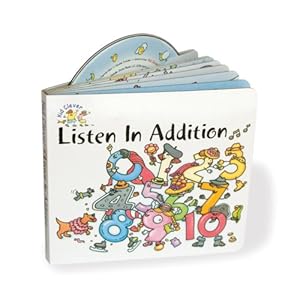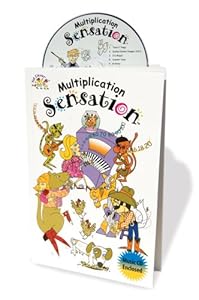Fiction Literature Guide/Book Report:
(for realistic or historical fiction,
myths/legends/folktales, humor, legend, science fiction, fantasy,
fairy tale, fable, or mystery)
File #1: http://lovetopaint.files.wordpress.com/2013/04/book-report-part-1.pdf
File #2: http://lovetopaint.files.wordpress.com/2013/04/book-report-part-2.pdf
File #1: http://lovetopaint.files.wordpress.com/2013/04/book-report-part-1.pdf
File #2: http://lovetopaint.files.wordpress.com/2013/04/book-report-part-2.pdf
1: Title Page (included in my file)
2: Book Info (included in my file)
On this page, include the title,
author, illustrator, copyright date, publisher, number of pages, and genre.
3:
Prediction about what the story will be about
http://www.scholastic.com/teachers/sites/default/files/asset/file/crossing-the-prediction-bridge-reading-response.pdf
http://www.scholastic.com/teachers/sites/default/files/asset/file/crossing-the-prediction-bridge-reading-response.pdf
4: Summary Page
Write down one sentence to summarize
what each chapter is about.
When you’ve finished reading the
book, write a summary paragraph to tell someone else what happens in the story. (included in my file)
A. List the characters as they are
introduced and who they are
B. Pick your favorite Character or the
most important character and describe
6: Setting
http://www.busyteacherscafe.com/worksheets/literacycenters/setting%20map.pdf
http://www.busyteacherscafe.com/worksheets/literacycenters/setting%20map.pdf
G. 3-4 Describe and draw a picture of what you think
this looks like.
G. 5-6 Identify both the physical place and the time
of year, time period for the story.
Answer the questions: Why are
these important to the story?
You may 1) draw a map or 2) draw a picture of one (or more)
place(s) in the story.
Keep a storyboard and draw a picture
or add events to it as they happen in the story.
For a mystery, substitute mystery
page instead of plot page.
9: Theme of the story
I found two worksheets on Teacherspayteachers.com for this topic.
http://www.teacherspayteachers.com/Product/Clues-to-Identifying-Theme You have to log in to download it for free.
I found two worksheets on Teacherspayteachers.com for this topic.
http://www.teacherspayteachers.com/Product/Clues-to-Identifying-Theme You have to log in to download it for free.
10: Vocabulary
Keep a running page and write down
words you don’t know as you’re reading and your best guess about what they
mean. After you’re done with the
chapter, look those words up and find out what they mean.
For each chapter, choose 1 word that
you find interesting and would like to use when you write. Complete a vocabulary diagram for that
word. (included in my file)
11: Complete a project about the book. http://www.teachnet.com/lesson/langarts/reading/bookrepts1.html
Optional Pages:
B. Style/tone (older grades)
C. Figurative Language (included in my file)
I'also planned a non-fiction book report and one for biographies and autobiographies. I also found or wrote individual worksheets for each genre. But, it takes a lot of time to post these links so I will try and post them later.
I began putting this unit together because I couldn't find what I wanted for sale, but now I'm very thankful I followed through. I got down my comprehension guide from Veritas Press for The Chronicles of Narnia. Autumn completed the unit for The Magician's Nephew back in January, but I have to admit that I didn't analyze the questions closely. Today I realized that every question I read was a literal, on the surface type question. None of the questions would be able to help lead students to a deeper level of thinking as Bloom's Taxonomy explains is important. I would definitely not recommend the Narnia guide. The other thing I noticed is that the questions never explicitly explain or ask students to identify the elements of a story. It is very important that students understand all the elements of a story that I've included above and learn how to identify them. In order to analyze literature when they are older, they will need a strong grasp of each of these parts of a story and why they are important.
How many pages you include in your unit will depend on your child and how long you want to spend on a book. Once addressed in a particular book, you can use a more all inclusive page from worksheetplace.com or busyteachercafe.com to gather that information, but not go indepth if you don't want to. These worksheets will work for 3-6th grade. I found simplified worksheets for my daughter to use in 2nd and 3rd grades, which I have to post another time. I need to get back to homeschooling!
I began putting this unit together because I couldn't find what I wanted for sale, but now I'm very thankful I followed through. I got down my comprehension guide from Veritas Press for The Chronicles of Narnia. Autumn completed the unit for The Magician's Nephew back in January, but I have to admit that I didn't analyze the questions closely. Today I realized that every question I read was a literal, on the surface type question. None of the questions would be able to help lead students to a deeper level of thinking as Bloom's Taxonomy explains is important. I would definitely not recommend the Narnia guide. The other thing I noticed is that the questions never explicitly explain or ask students to identify the elements of a story. It is very important that students understand all the elements of a story that I've included above and learn how to identify them. In order to analyze literature when they are older, they will need a strong grasp of each of these parts of a story and why they are important.
How many pages you include in your unit will depend on your child and how long you want to spend on a book. Once addressed in a particular book, you can use a more all inclusive page from worksheetplace.com or busyteachercafe.com to gather that information, but not go indepth if you don't want to. These worksheets will work for 3-6th grade. I found simplified worksheets for my daughter to use in 2nd and 3rd grades, which I have to post another time. I need to get back to homeschooling!



